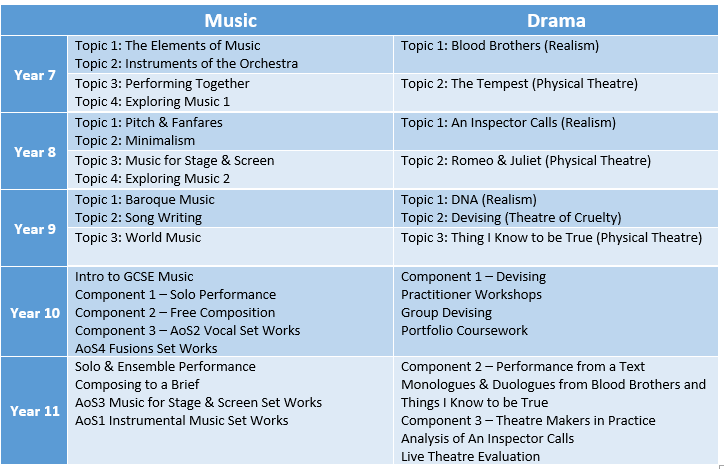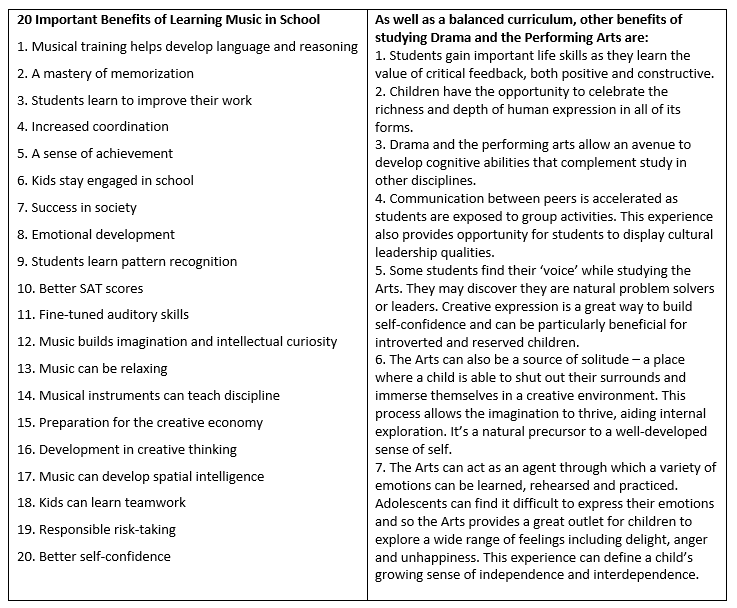Music & Performing Arts
Music & Performing Arts
Department Philosophy
Where words fail, music speaks – Hans Christian Anderson
Without music, life would be a mistake – Friedrich Nietzsche
Acting is not about being famous, it’s about exploring the human soul – Annette Bening
Dance is the hidden language of the soul of the body – Martha Graham
The Music & Performing Arts faculty…
- Is committed to offering a broad and engaging curriculum that will encourage every pupil to develop their own characters as well as practical and social skills through performing together
- Wants to make studying Music, Drama and Dance enjoyable to enable pupils to embark on a lifelong love of the arts
- Will nurture every individual’s own skills and talents in an environment built on inclusion and mutual respect
- Aims to provide pupils with as many opportunities as possible to experience the arts, through lessons, extra-curricular groups and visits
Curriculum Overview 2022-23



Careers in the Performing Arts
Careers in Music
- Arts Administrator
- Community Arts Worker
- Instrumental Teacher
- Music Teacher
- Music Therapist
- Musician
- Orchestra Librarian
- Private Instrumental Music Teacher
- Radio Broadcast Assistant
- Radio Producer
- Secondary School Teacher
- Sound Technician
- West End Musical Behaviour
Careers in Drama
- Actor/Actress
- Stage Manager
- Arts Administrator
- Drama Teacher
- Dramatherapist
- Television Production Assistant
- Radio Presenter
- Theatre Director
- Script Writer
Careers in Dance
- Choreographer
- Movement Director
- Cruise Ship Entertainer
- Dance Teacher
- Dance Lecturer
- Fitness Instructor
- Disney Cast Member
- West End Performer
- Company Dancer
- Dance Photographer
- Dance Journalist
- Costume/Set Designer
- Physiotherapist
- Dance Therapist
- Youth Worker
